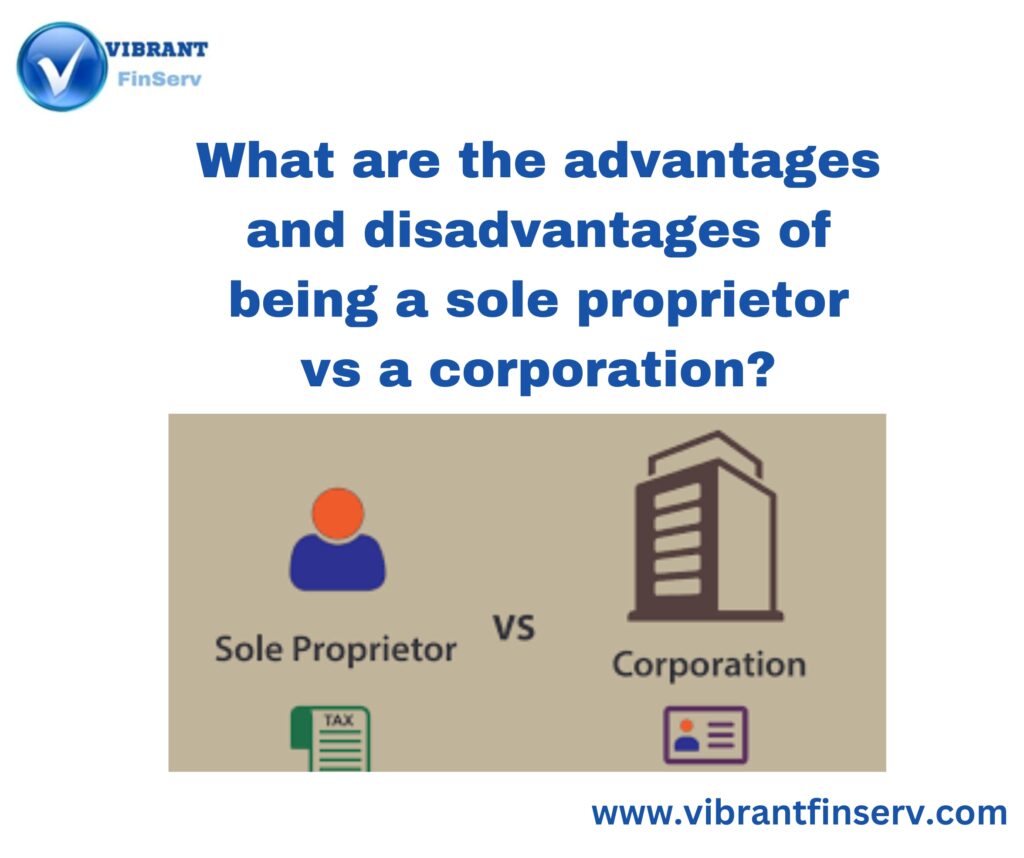Sole Proprietorship and Corporation
Introduction
Choosing the right business structure is crucial for entrepreneurs. Sole proprietorships and corporations are two common forms, each with unique benefits and drawbacks. Understanding their differences can help business owners decide which structure best suits their needs.
Definition
- Sole Proprietorship: A business owned and operated by one individual, with no legal distinction between the owner and the business.
- Corporation: A separate legal entity from its owners, offering liability protection but requiring more regulatory compliance.
User Intent
Individuals and entrepreneurs seek to understand the pros and cons of sole proprietorships and corporations to make informed decisions about their business structure based on risk, taxation, and scalability.
Application of Sole Proprietorship and Corporation
- Sole Proprietorship: Ideal for freelancers, small business owners, and individuals looking for full control with minimal regulations.
- Corporation: Suitable for larger businesses seeking investor funding, scalability, and legal separation from the owners.
Advantages of Sole Proprietorship
- Simple and Inexpensive – Easy to establish with minimal paperwork.
- Full Control – The owner makes all decisions independently.
- Lower Taxes – Business income is taxed as personal income, avoiding corporate tax rates.
- Flexibility – The owner can quickly adapt to market changes.
- Fewer Regulations – Less government oversight and compliance requirements.
Advantages of Corporation
- Limited Liability – Owners are not personally responsible for business debts.
- Ability to Raise Capital – Corporations can issue stocks to attract investors.
- Business Continuity – The business exists independently of its owners.
- Tax Benefits – Certain expenses can be deduct, reducing taxable income.
- Credibility – A corporation is often viewed as more trustworthy by customers and investors.
Disadvantages of Sole Proprietorship
- Unlimited Liability – The owner is personally responsible for business debts.
- Limited Growth Potential – Raising capital is difficult without external investors.
- Tax Burden – All profits are tax as personal income, which can be costly.
- Lack of Business Continuity – The business ceases to exist if the owner leaves or dies.
- Credibility Issues – Less appealing to potential investors and clients.
Disadvantages of Corporation
- Complex Formation – Requires extensive paperwork and regulatory compliance.
- Double Taxation – Profits are taxed at both corporate and personal levels if dividends are distributed.
- Higher Costs – Legal and administrative expenses can be substantial.
- Less Flexibility – Decisions require board approvals, reducing individual control.
- Regulatory Oversight – Must comply with corporate laws and reporting requirements.
Comparative Table: Sole Proprietorship vs. Corporation
| Feature | Sole Proprietorship | Corporation |
|---|---|---|
| Ownership | Single individual | Multiple shareholders |
| Liability | Owner is personally liable | Limited liability for owners |
| Taxation | Personal income tax | Corporate tax (plus potential double taxation) |
| Regulatory Compliance | Minimal paperwork | Extensive regulations and filings |
| Capital Raising | Limited options | Can issue stocks and attract investors |
| Business Continuity | Ends with owner’s departure | Continues independently |
| Decision-Making | Full control by owner | Decisions require board approval |
| Credibility | Less recognized by investors | Higher trust and market credibility |
Conclusion
Both sole proprietorships and corporations have distinct advantages and disadvantages. A sole proprietorship offers simplicity and full control but comes with personal liability and limited growth potential. A corporation provides liability protection, credibility, and investment opportunities but requires more compliance and higher costs. Entrepreneurs should carefully evaluate their business goals, financial situation, and risk tolerance before choosing a structure.
FAQs:
To visit https://www.incometax.gov.in
For further details access our website https://vibrantfinserv.com/
To visit: https://www.mca.gov.in/
Contact: 8130555124, 8130045124
Whatsapp: https://wa.me/918130555124
Mail ID: operations@vibrantfinserv.com
Web Link: https://vibrantfinserv.com
FB Link: https://fb.me/vibrantfinserv
Insta Link: https://www.instagram.com/vibrantfinserv2/
Twitter: https://twitter.com/VibrantFinserv
To visit: https://www.mca.gov.in

